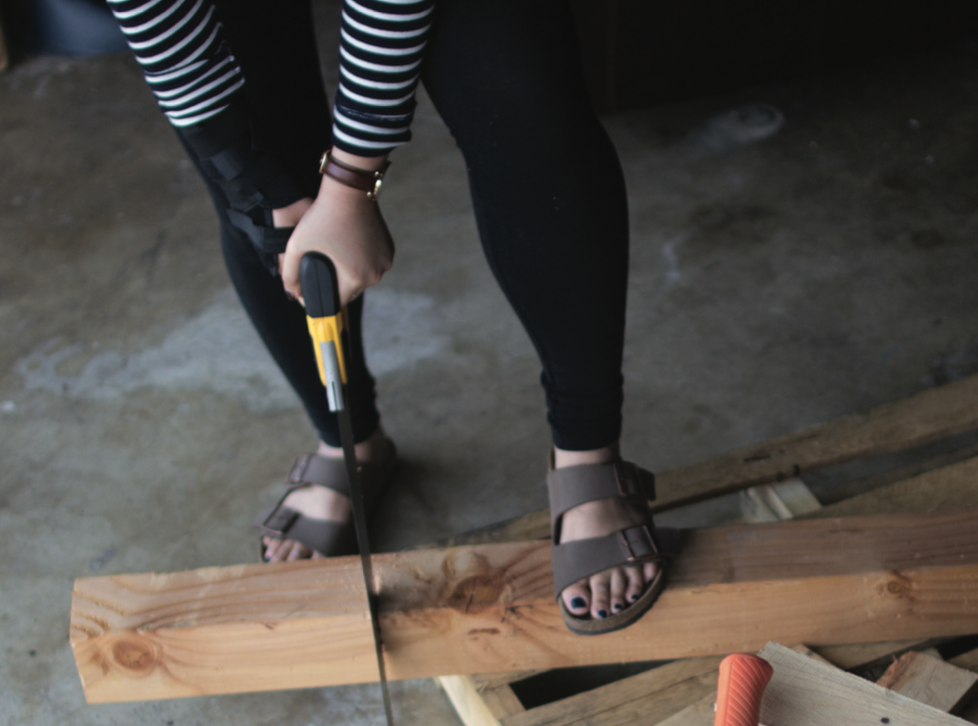Written by Morgan Mitchell
Have you ever thought about your future beyond Biola and quickly decided not to because of the sudden wave of anxiety that washes over you? It’s easy to panic over what exactly God’s plan is. Everyone’s heard phrases like “Give it to God” or “God will provide and open doors,” but as you prepare to enter the world you should prepare a wise response to them.Have you ever thought about your future beyond Biola and quickly decided not to because of the sudden wave of anxiety that washes over you? It’s easy to panic over what exactly God’s plan is. Everyone’s heard phrases like “Give it to God” or “God will provide and open doors,” but as you prepare to enter the world you should prepare a wise response to them.
44 percent of Biola graduates in 2014 got full- time jobs within 6 months after they graduated, 30 percent got part-time jobs, 10 percent were unemployed but seeking jobs, 10 percent were enrolled full-time in graduate school and 3 percent got volunteer jobs. ese data from an alumni survey can be found on Biola’s Center for Career Development website.
Various factors come into play with these statistics. Those who move right into full-time jobs are heralded as success stories, and Biola would obviously love to see that number increase. However, is it possible that some students do not feel called to enter the working world full-time right after they graduate?
When choosing a career, or even a major for that matter, how do you find out what God’s plan is? Will he descend from the Heavens or write in the clouds? Probably not. Some students feel they are wandering on a path, alone and confused, while other students feel like they know exactly what God wants for them. Brian Like, a senior Biblical Studies major, plans to get his Masters of Divinity degree at Trinity Evangelical Divinity School in Chicago. From there, he will enter a doctorate program or do ministry work depending on opportunities available. Like wants to be a theological studies professor and a pastor. How does he know that this is God’s plan for him? Simple.
“I love reading books written by dead theologians,” gushes Like. “I know this is God’s plan for me based on my strengths and passions. I really enjoy reading, writing and thinking and arguing about theology and learning about it.” Like went on to explain how his story relates to the divine metanarrative.
“God guides our lives 100 percent sovereignly,” he says. “But I really believe he calls each individual Christian to be aware of their strengths and calling and it’s our job to know and work towards that.” JJ Carroll, a recent Biola graduate, is currently unemployed and working on a feature-length comedy lm that he hopes will get his foot in the door of the entertainment industry. He said he feels working in comedy is God’s plan for him because he’s always loved movies and making people laugh.
“I get such an energy when I can make somebody laugh. Comedy isn’t about taking; it’s about giving and what you can give to a person or audience through joy and laughter,” says Carroll. “As a Christian in comedy, clean comedy is hard. I want to change the face of comedy. That’s what was put on my heart by the Lord, to show people that Christians can be funny and edgy and still serve the Lord in that, and that’s my passion.”
Uche Anizor, associate professor of biblical and theological studies, likes to share insight on this with his students. If he were asked how to figure out God’s plan, he would answer with this: “God has been involved up until this stage in their lives. e fact that they are seniors at Biola in this program is not happenstance. Part of their discerning God’s voice is to look at their lives and say, ‘OK I have these opportunities, skills, desires, training,’ and that’s what God’s saying. Follow these things.”
He went on to clarify. “The position I’m taking is not that we don’t need to pray or think hard or that it’s not going to be hard sometimes making a decision, but we shouldn’t close our ears or eyes to what God has already done and we should be following the path of our skills, talents, training and desires.”
It’s not about waiting for God to show his plan and open doors — just pursue your passions and talents. Graduates without full-time jobs aren’t necessarily not pursuing their passions and talents.
“For a lot of students there is more of a willingness to settle in your first few years out of college doing something that’s meaningful, in the church or nonprofit, so you work part time to pay the bills while you do this,” acknowledges Anizor.
Like and Carroll both mentioned working for their local church.
“Everyone is called to be a living, working, member of a local church,” says Like. Carroll is living out that calling right now.
“I’ve been really plugged in and really involved with my church and doing worship and growing in that,” says Carroll. “[God] wanted me to be more involved in my church and the direction my church is heading.”
Based on comparison of full-time postgrad employment statistics, Biola graduates might appear less ambitious than other postgrads around the nation. More than a lack of ambition, could this perhaps reveal fear? A lot of the time, Christians are scared that the job they pursue is the wrong one and not what God wants for them, so they don’t apply. Uche Anizor explained, though, why these “mistakes” are also part of God’s plan.
“God wants [Christians] to grow into adulthood, and that means making decisions and living with the consequences and learning from that; that’s one of the ways God helps us mature as adults,” says Anizor. “Mature Christians have to make mistakes and I think … the one major allergy that students have is they don’t want to make mistakes. That’s all a part of God’s means of shaping us and helping us grow into adulthood.”
Carroll said that even if his lm doesn’t work out, he knows it was God’s plan for him to either learn a lot along the way or have it pay o in a bigger way.
Biola students need to set aside their fears and just work hard at whatever they choose to put themselves into. That’s key to living out God’s plan for you.
“People think that out of nowhere something will pop up like, ‘WOAH that’s a total God thing!’” Anizor says. “Whereas God’s opening of doors is often mundane and just: I worked hard in my program, I applied for a job, and I got a job because I worked hard and positioned myself. That’s no less God than I didn’t work hard but I prayed really hard and God just gave me this super surprise job.”
Anizor stresses the value of diligence. “I really would love for students to just see it as a good thing to work hard. Success is a good thing and it’s a blessing from God, but it comes to those who actually work hard, try, dream and chase after those things.”
The statistics listed before clearly have many aspects contributing to them. God is capable of using whatever your postgrad life will look like. If you are unsure about God’s plan for you, go after what you are passionate about. If you feel called to work in the church or volunteer at a nonprofit, go for it! If you feel called to go back to school, go for it! Regardless of what you choose, make sure you are working hard. Don’t sit around waiting for God to open doors without you trying to knock them down first. And as legendary baseball-player Babe Ruth once said, “Don’t let the fear of striking out keep you from playing the game.”





